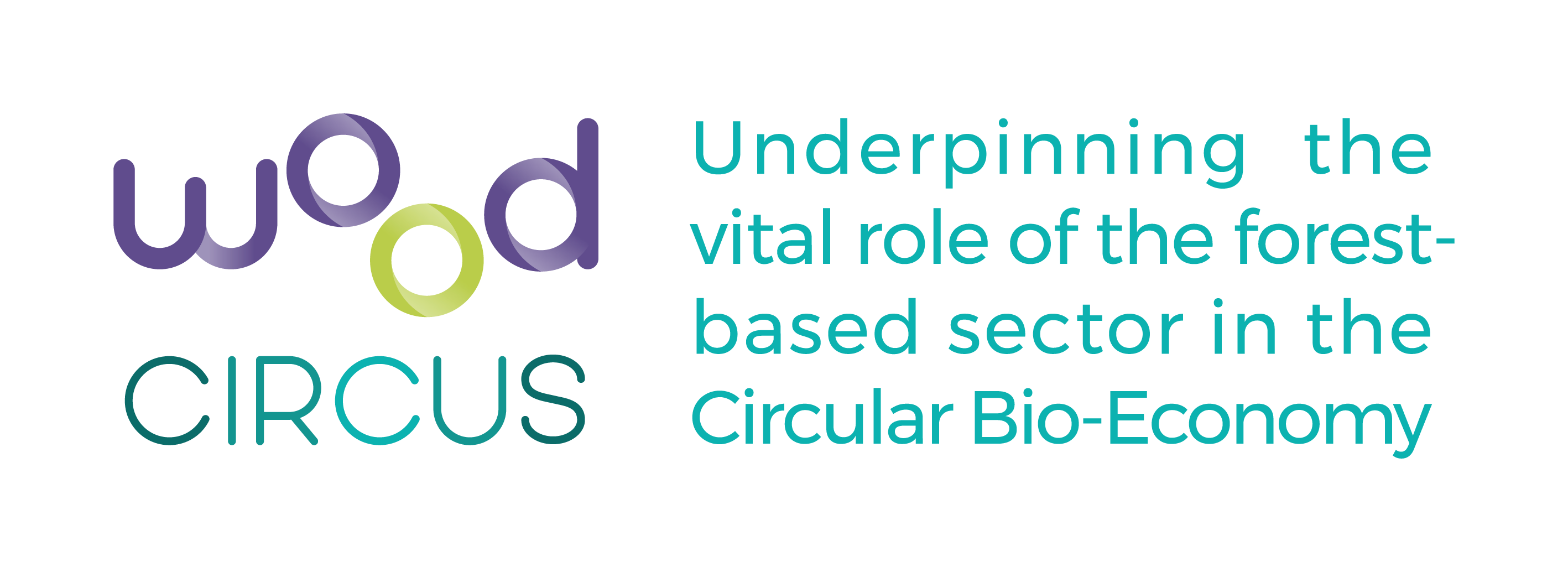Woodcircus
Behind the scenes
Woodworking industries redefining the circular bioeconomy in Northern Europe
25 November 2021
Circular bioeconomy has a strong support from public decision makers and authorities in Northern Europe. Carbon neutrality 2030 roadmaps among national climate change mitigation strategies have been established during the recent years for the basis of public decision making and industry support for the different industry sectors, sawmill, woodworking and construction industries among them. Sawmills and woodworking sector have either created independent roadmaps and initiatives for development, like in Finland, as a part of forest industry, like in Sweden, or among processing or infrastructure industries, like in Norway or Baltic countries. Depending on the country, financial tools have been established or outlined.
Advanced industrial co-operation, business model innovations and supportive governmental environment are the key assets of the wood-based circular economy and wood construction value networks in Northern Europe with a multitude of different industrial ecosystems. They combine forest, woodworking, chemical and energy industries and construction into supply and value chains, locally integrated or regionally decentralized. Seamless collaboration between public and private entities, academia and research organisations in RTDI activities, policy and regulation implementation and a strong knowledge basis enable circular transition in Northern Europe.
The expansion of material supply for new products for reuse and recycling is, however, limited by the current economic reality, caused by small sized local markets, challenging logistics with long transportation distances, and sometimes scattered sources of raw materials. There is also a strong need for redefining the cascading principle to better address and integrate the macro-regional specificities. When economically and environmentally preferable, advanced wood-based bioenergy solutions have to be considered as an option to replace fossil energy sources. Fossil fuels and fossil-fuel-based electricity can easily be substituted by wood-based sources in the boreal climate and energy-intensive society and industries of Northern Europe.
Innovative recycling and waste management systems exist, but further improvements in sourcing and sorting of construction, demolition and packaging wastes and upgrading of industrial side streams for cascading uses are needed in Northern Europe. Adding value remains a key challenge in expanding cascading use in the wood construction value chains. In future, the requirements of sustainable development, eco-design and customer-based functionalities should be stressed also in the utilization of side streams and wastes. Developing material and product properties as well as services toward recyclability and reusability, including long service life and potential for reassembling, renovation and modification of buildings should become the future industrial competitive edge.
Combining value-add, resource efficiency, renewability and recyclability, sustainability and financing of investments are key issues for the success of woodworking industries and building and living with wood sector in circular economy. The companies need stable, predictable and up-to-date regulatory framework conditions to develop their operations and markets for novel products. Research has generated a lot of innovative showcases for the utilization of industrial side streams from wood product industries, but the problems often lie in their commercialisation, proofs-of-concept, funding availability, company and investment risks. There is a large potential to position climate friendly woodworking products in the core of forest-based industries, and enlarge and develop the markets for innovative and sustainable solutions.
European macro-regions and countries have specific framework conditions and therefore different challenges and opportunities. In Northern Europe, circular bioeconomy is composed of resource efficient woodworking industries (sawmill, plywood and LVL in the core, in addition some other panel industries and well-known furniture companies), pulp and paper, bioenergy, construction and waste management value chains, which can easily make the next steps towards climate positive and carbon neutral industry and society.
Erkki Verkasalo
Research Professor of wood
science and technology, LUKE
Co-leader of WP2
erkki.verkasalo@luke.fi
Kai Merivuori
Managing Director, Finnish Sawmills Association
kai.merivuori@sahateollisuus.com
Erkki Verkasalo
Research Professor of wood science and technology, LUKE
Co-leader of WP2
erkki.verkasalo@luke.fi
Kai Merivuori
Managing Director, Finnish Sawmills Association
kai.merivuori@sahateollisuus.com
CONTACT US
Interested in joining the WoodCircus network? Please use the contact form to get in touch with us or contact directly the WoodCircus Ringmaster :
Project Coordinator
Anne-Christine Ritschkoff, VTT
Anne-Christine.Ritschkoff@vtt.fi
PROJECT COORDINATOR
VTT Technical Research Centre of Finland Ltd
Anne-Christine Ritschkoff
Anne-Christine.Ritschkoff@vtt.fi


